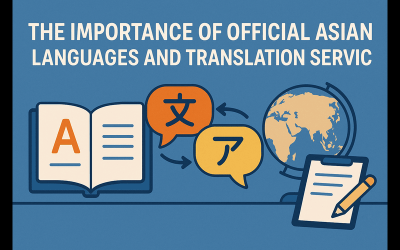If you are wondering whether translation and transcreation have the same meaning or the difference between these two terms, let us explain. Keep reading to find out what translation and transcreation are, and how these sister terms differ from each other.
The phenomenon of translation is about conveying the meaning and content of a document or a speech for a native audience. Thus, the translator is required to be aware of and transmit the nuances of the original text to its target language. On the other hand, languages evolve and change just like societies and cultures. And translators must be knowledgeable in the target language so that they can follow the ongoing changes in their languages and have perfect grammar knowledge.
What is Transcreation?
Translations can be thought as being a mechanical process starting with one language to another. This is the reason machine translations and inverse translation must be treated with consideration. Since translation is a kind of mechanical process starting with one language to another by going through “word to word” and putting cultural and regional characteristics on the back burner, an important question awakes at this point: What is transcreation in translation?
You might be wondering what transcreation mean. Transcreation is a term used to refer to the process of adapting source content from one language to another based on its cultural and regional characteristics. In other words, transcreation is about conveying the meaning of the original phrase by taking its social and cultural context into account.
Transcreation in Literature
As noted earlier, transcreation is an adaptation of a language from one culture to another. For a better understanding to define transcreation, let’s look at some examples in a couple of disciplines. Transcreation in literature has become a conspicuous issue in literature. For example, there will be considerably more change in the interpretation of a ballad than there will be in the interpretation of a lot of working guidelines for a kitchen blender. The previous is full of feelings and individual perceptions, and the latter is a set of guidelines with little ambiguity.
Here’s an example of transcreation of an idiomatic expression. In English to express “to trick or fool someone,” the idiom “pulling someone’s leg” is used. This idiomatic expression stems from historical events and has a journey of cultural transmission so far. This expression comes from a technique utilized by street thieves in eighteenth and nineteenth-century London. Regularly working two by two, one criminal, known as a “tripper up” was entrusted with entangling a clueless unfortunate casualty utilizing a stick, rope or bit of wire. The other criminal burglarizes the injured individual as he lay on the ground. Destroying your leg initially alluded to the way the “tripper up” attempted to make somebody falter. Today it just refers to tripping somebody metaphorically.
Thus, in the original language, the intended meaning of the expression is not physically pulling someone’s leg; instead, the anticipated massage is to trick or fool someone.
Mechanical translation of this expression cannot comprehend the contexts, nuances, and be wide-ranging. It is mechanical going through from word to word; and thus, it cannot reproduce the exact meaning and perspective.
Marketing Transcreation
For example, when focusing on a marketing transcreation, you should consider whether your marketing message will translate adequately. Is it true that you are anticipating just deciphering the content as of now on your site? Or will you adjust the English substance before translation? Not all mottos or slogans will interpret effectively into your target language. This method is unique concerning showcasing as it includes adjusting the message into an alternate language. As it is an increasingly innovative procedure, it can include time and furthermore be expensive to your financial limit. So the part that translation isn’t just about the composed word, yet something that pervaded into today’s headways. The list includes sites, programming, applications, marking guarantees, and so on. content writing and translation can deal with these tasks! Expert translators will make sure that marketing values and message are transmitted correctly.
Transcreation process is about taking an idea in one language and reproducing it in another language by conveys exactly the intended message. In contrast to arithmetic, where there is normally a privilege, and an off-base answer, language is considerably more inconspicuous and nuanced with the goal that no two interpreters will create the very same completed messages even though both are similarly exact. In general, the more conceptual a document the more variety between two interpretations of it, even though the two of them remain “accurate.”
Transcreation jobs are “deciphering” and “reproducing” the first content in another language while ensuring it is suitable in the setting for which it is aimed. Thus, transcreation services must comprehend the ideal result completely. Be given the opportunity not only exclusively to translate the original but also to roll out noteworthy improvements to it.
Last but not least
Lastly let’s talk about transcreation content. The objective of transcreation isn’t to say something very similar in another language. Without a doubt, it is frequently impractical to state something very similar in another dialect. Transcreation expects to get a similar response in every language, something that interpretation in itself won’t almost certainly accomplish. There are a huge number of expressions over all languages that we underestimate, and give no idea as to their causes. To succeed in the field of transcreation, one should be a real translation expert. As a rule, their clarifications are genuinely intriguing and enable us to venture back to when individuals’ lives were altogether different from we own today.
Certified Translation Services
Get your documents translated and certified by a professional translator in 120+ languages with 24 hour delivery.
Get a Quote Rana Maalouf
Rana Maalouf

